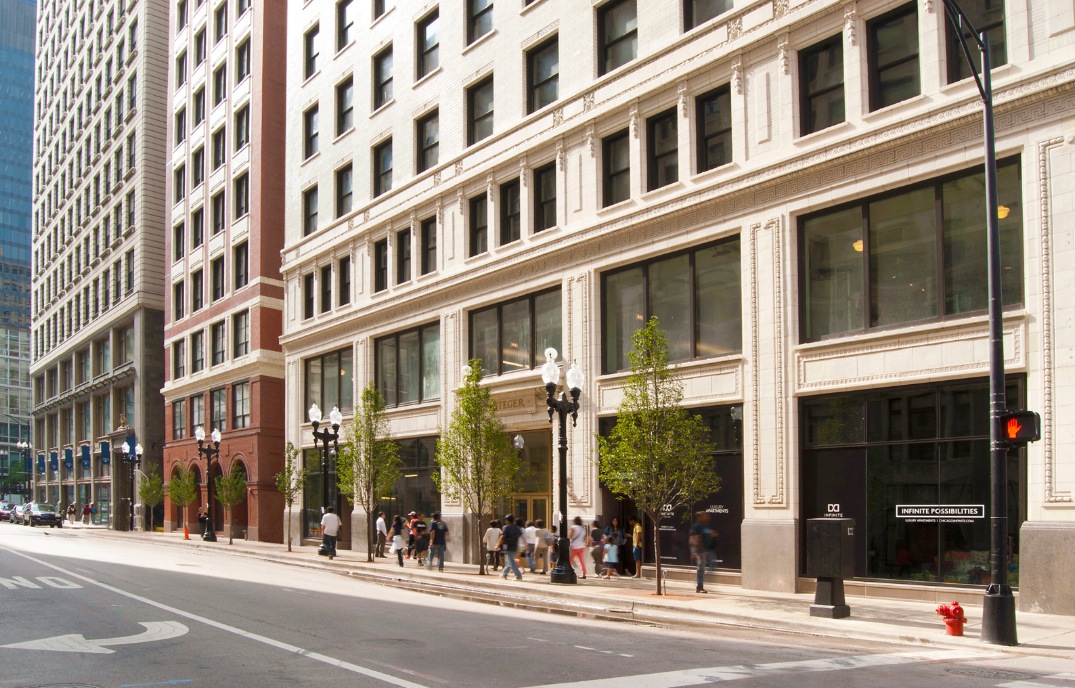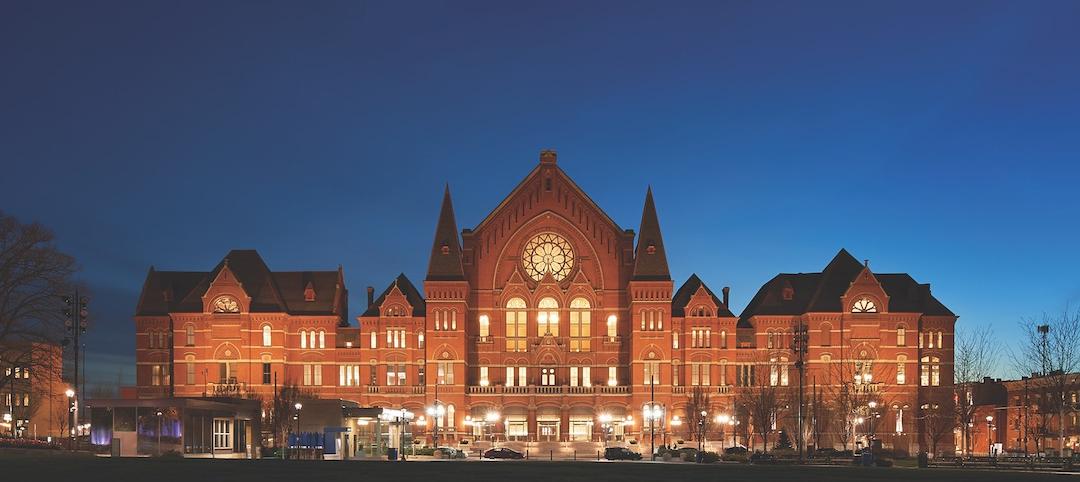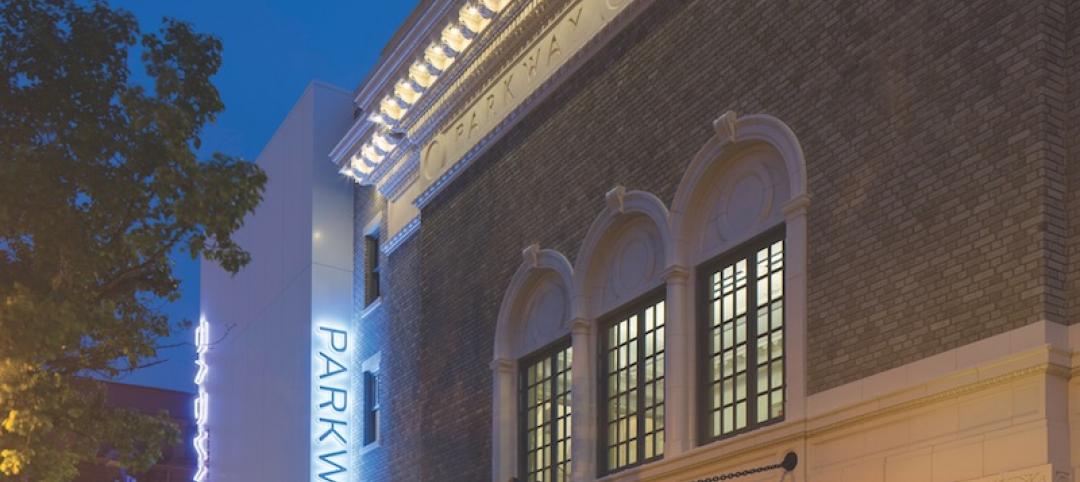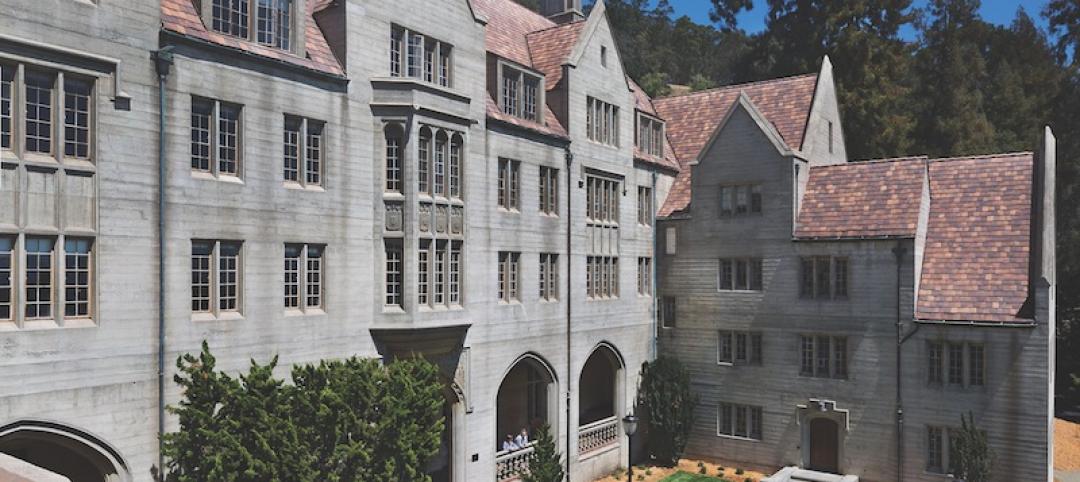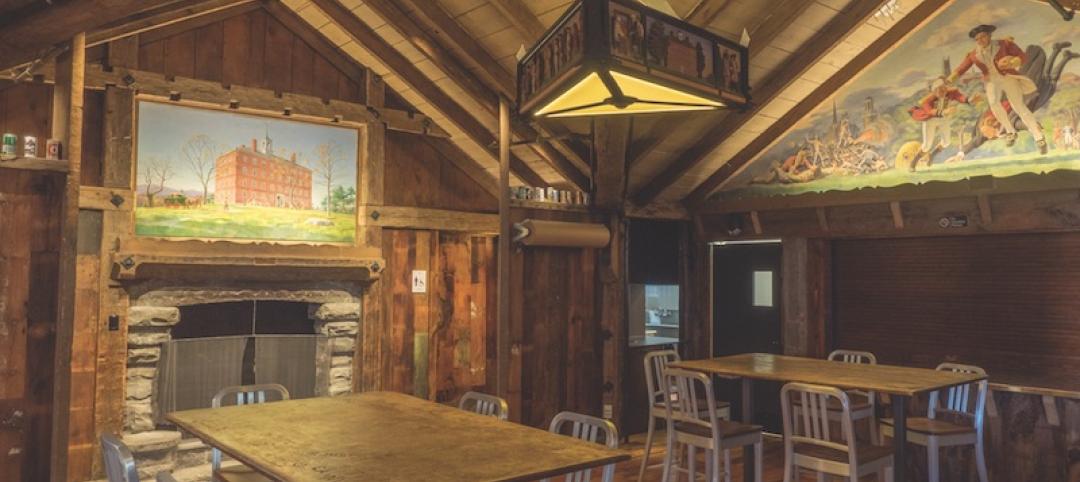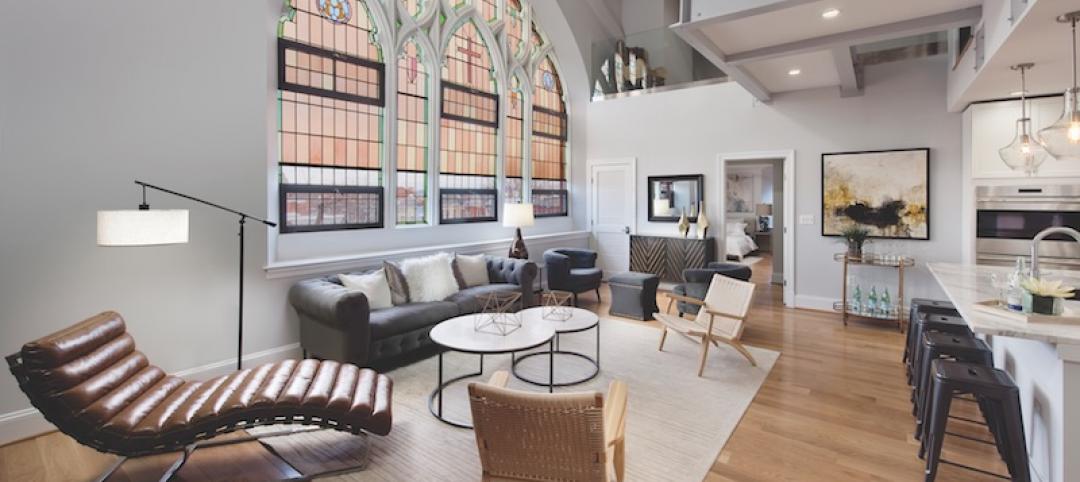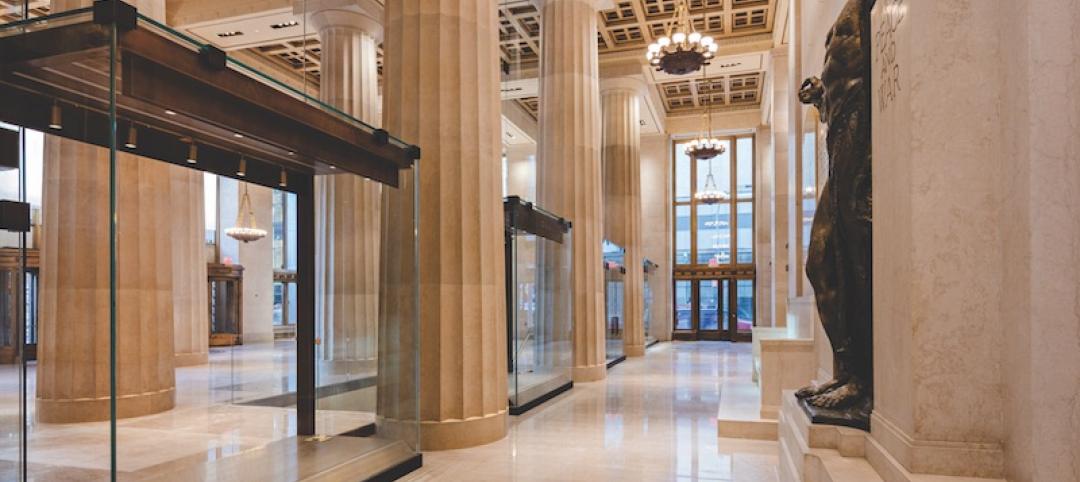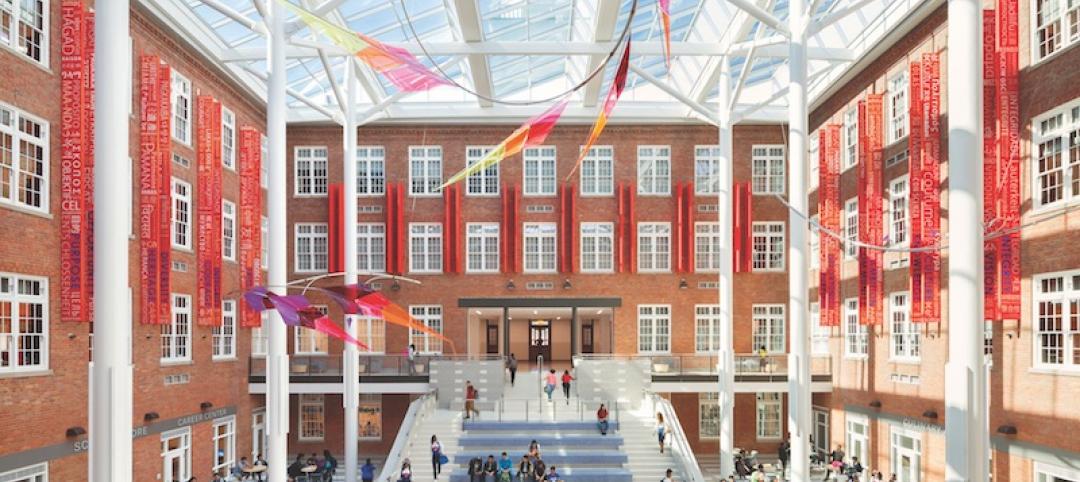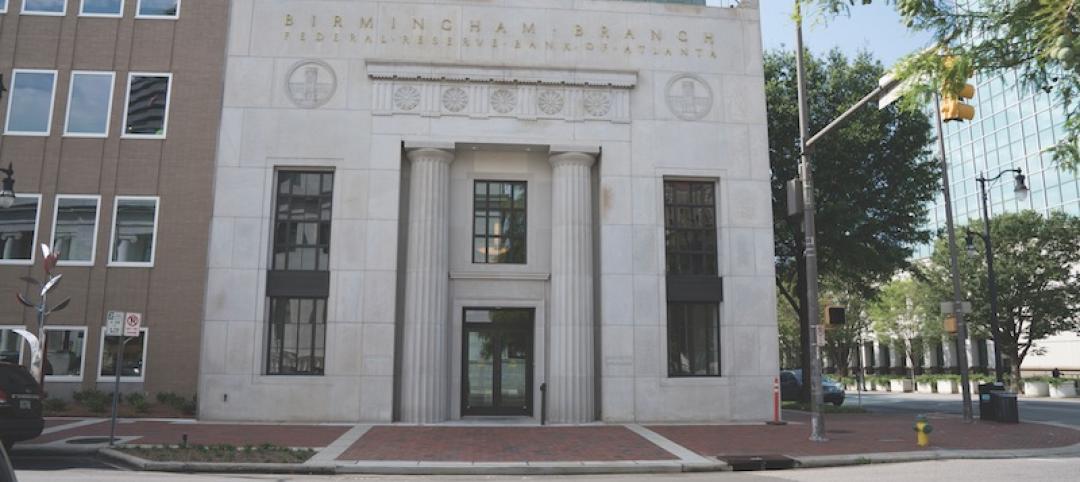Infinite Chicago is a redevelopment of three historic downtown buildings: the former Gibbons and Steger Buildings and, between them, the one-time Pickwick Stables. Prior to their renovation, all three buildings had fallen into serious disrepair and were only 40% occupied.
The buildings are located at the center of Chicago’s largest higher education campus, with several colleges and universities clustered nearby. The project repurposed the 16-story Gibbons Building and the 19-story Steger Building into 124 student living units with 409 beds.
SILVER AWARD
INFINITE CHICAGO | Chicago, Ill.
Building Team
Submitting firm: Pappageorge Haymes Partners (architect)
Owner/developer: DRI/CA Gibbons Steger (c/o CA Ventures)
Interior design: Valerio Dewalt Train Associates
Structural engineer: Stephen Kibler LLC
M/P engineer: Ewing-Doherty Mechanical, Inc.
Electrical engineer: JMS Electric, Inc.
Civil engineer: Ericksson Engineering Associates
General contractor: Linn-Mathes Inc.General Information
Size: 215,200 sf
Construction cost: $33.7 million
Construction time: January 2013 to August 2014
Delivery method: Design-bid-build
Because funding included historic tax credits, the project had to comply with the strict preservation/repair standards set by the U.S. Secretary of the Interior.
This renovation encountered its share of obstacles: substandard mechanical and electrical systems, inadequate exits, deteriorating façade, and zero lot line setback conditions. An access easement for a neighboring structure had to be worked around. The Gibbons and Steger structures practically bumped up to elevated train lines in Chicago’s Loop, which limited window and ventilation options.
The foundation under the northwest column of Steger, built in 1910, was practically nonexistent. There were no masonry ties at two of the building’s corners. Steger’s shear wall X-bracing, with its exterior moment frame, added to the project’s complexity.
The Building Team repaired the façades and replaced a five-foot terra cotta cornice at Steger with a section made from glass fiber–reinforced concrete. (Original drawings provided by the University of Texas at Austin were used to create some missing parts.) By using an offsite cooling facility, the buildings could forgo the need for large onsite electrical services and a cooling plant.
The renovation’s most noteworthy accomplishment was the addition of a bridge that connects the buildings at all floors above the fifth level. Originally conceived in steel, it was determined that a concrete structure would be best suited to the complex form, whose angular footprint derives from the required column location and ramp lengths between the structures.
With no way to get a crane into the congested site, the GC, Linn-Mathes, determined that a concrete bridge could be pumped into place and supported on a spread footing.
The bridge incorporates a rigid tie to the Steger Building, a sliding PTFE support pad at Gibbons, and an 18-inch column founded on a 19-sf spread footing. The footing fills the basement of Pickwick Stables, a three-story building between the two high-rises that was deconverted to two stories and renovated.
The bridge fulfilled the city’s access and life safety requirements and permitted the removal of three unsightly fire escapes.
The buildings’ 10,000-plus sf of street-level retail space were retained. The roof level of Gibbons was improved with a new outdoor terrace and event room. Steger’s lobby was restored. A tree-lined streetscape was added, with historically accurate storefront replacements.
The buildings feature seven residential floor plans, plus a fitness center, a business center, a club and lounge room with kitchenette, and, at Gibbons, a landscaped roof deck.
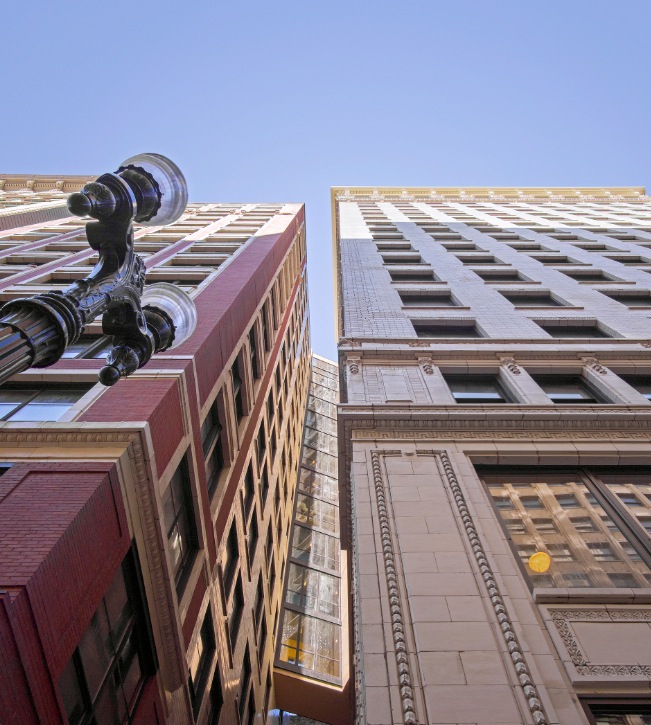 A concrete bridge connects the two buildings at all floors above the fifth level at Infinite Chicago. This allowed for the removal of three unsightly fire escapes. Photo courtesy CA Student Living.
A concrete bridge connects the two buildings at all floors above the fifth level at Infinite Chicago. This allowed for the removal of three unsightly fire escapes. Photo courtesy CA Student Living.
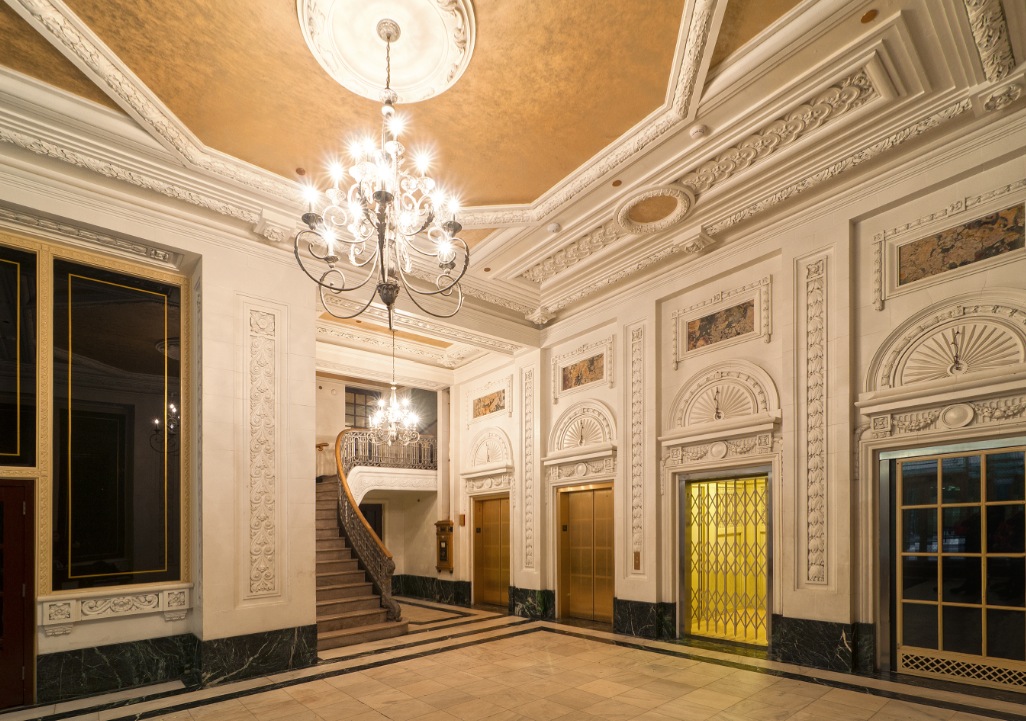 The renovated lobby of the Steger Building. Photo courtesy Pappageorge Haymes Partners.
The renovated lobby of the Steger Building. Photo courtesy Pappageorge Haymes Partners.
Related Stories
Reconstruction Awards | Nov 12, 2018
Cincinnati Music Hall: Saving a cultural anchor
Cincinnati uses ‘skillful triage’ to bring its endangered Music Hall up to date.
Reconstruction Awards | Dec 1, 2017
Rescue mission: Historic movie palace is now the centerpiece of Baltimore’s burgeoning arts hub
In restoring the theater, the design team employed what it calls a “rescued ruin” preservation approach.
Reconstruction Awards | Dec 1, 2017
Gothic revival: The nation’s first residential college is meticulously restored
This project involved the renovation and restoration of the 57,000-sf hall, and the construction of a 4,200-sf addition.
Reconstruction Awards | Dec 1, 2017
Rockefeller remake: Iconic New York tower is modernized for its next life
To make way for new ground-floor retail and a more dramatic entrance and lobby, the team removed four columns at the ground floor.
Reconstruction Awards | Nov 30, 2017
BD+C's 2017 Reconstruction Award Winners
Provo City Center Temple, the Union Trust Building, and the General Motors Factory One are just a few of the projects recognized as 2017 Reconstruction Award winners.
Reconstruction Awards | Nov 29, 2017
College credit: Historic rehab saves 50% on energy costs
The project team conducted surveys of students, faculty, and staff to get their input.
Reconstruction Awards | Nov 29, 2017
Amazing grace: Renovation turns a church into elegant condos
The windows became The Sanctuary’s chief sales edge.
Reconstruction Awards | Nov 28, 2017
Broadway melody: Glass walls set just the right tone for a historic lobby in Lower Manhattan
The adaptation of the 45,000-sf neoclassical lobby at 195 Broadway created three retail spaces and a public walkway.
Reconstruction Awards | Nov 27, 2017
Higher education: The rebirth of a Washington, D.C., high school
The project team, led by architect Perkins Eastman, restored the original cupola.
Reconstruction Awards | Nov 27, 2017
Bank statement: A project team saves a historic bank, yielding 100% leaseup for the developer
The project team had to fix poor renovations made in the ’50s.


